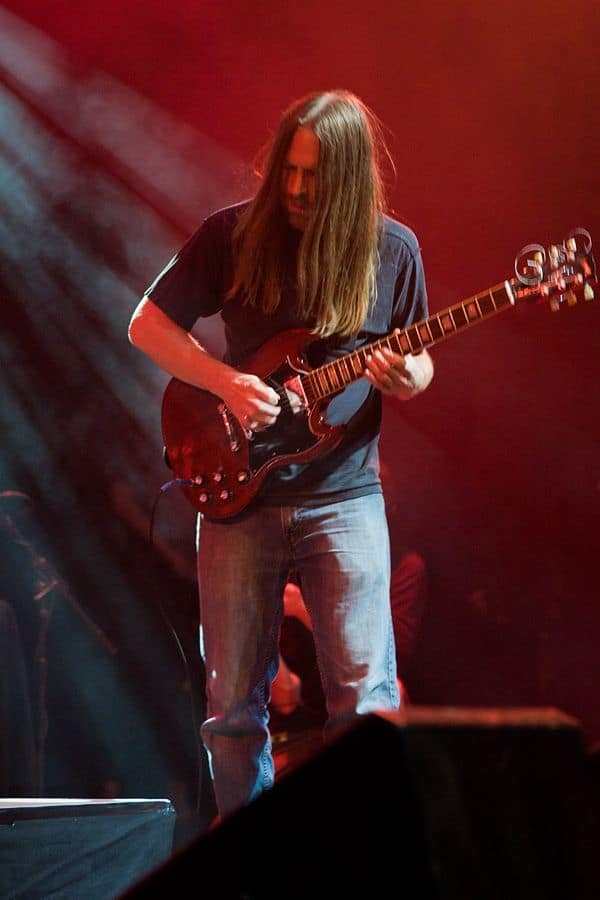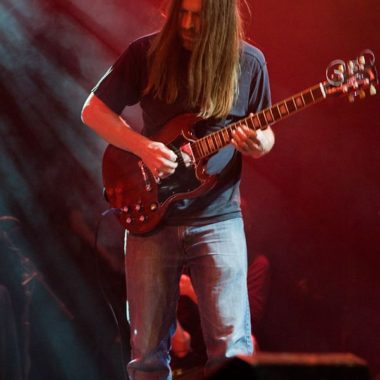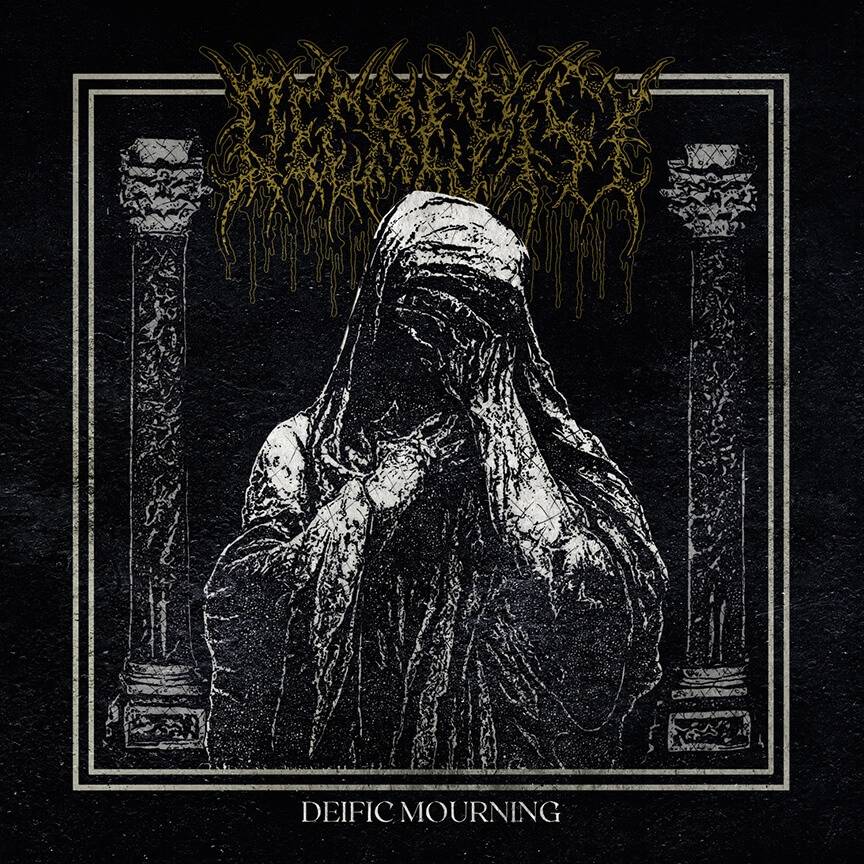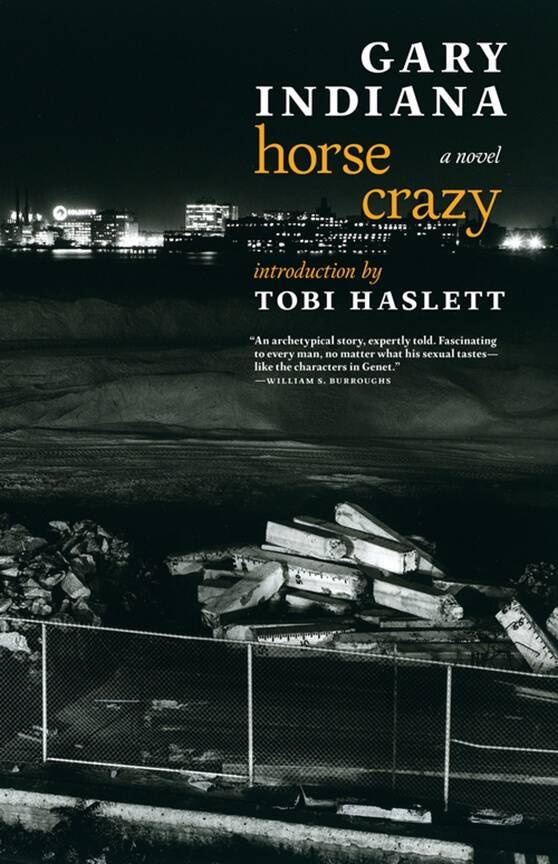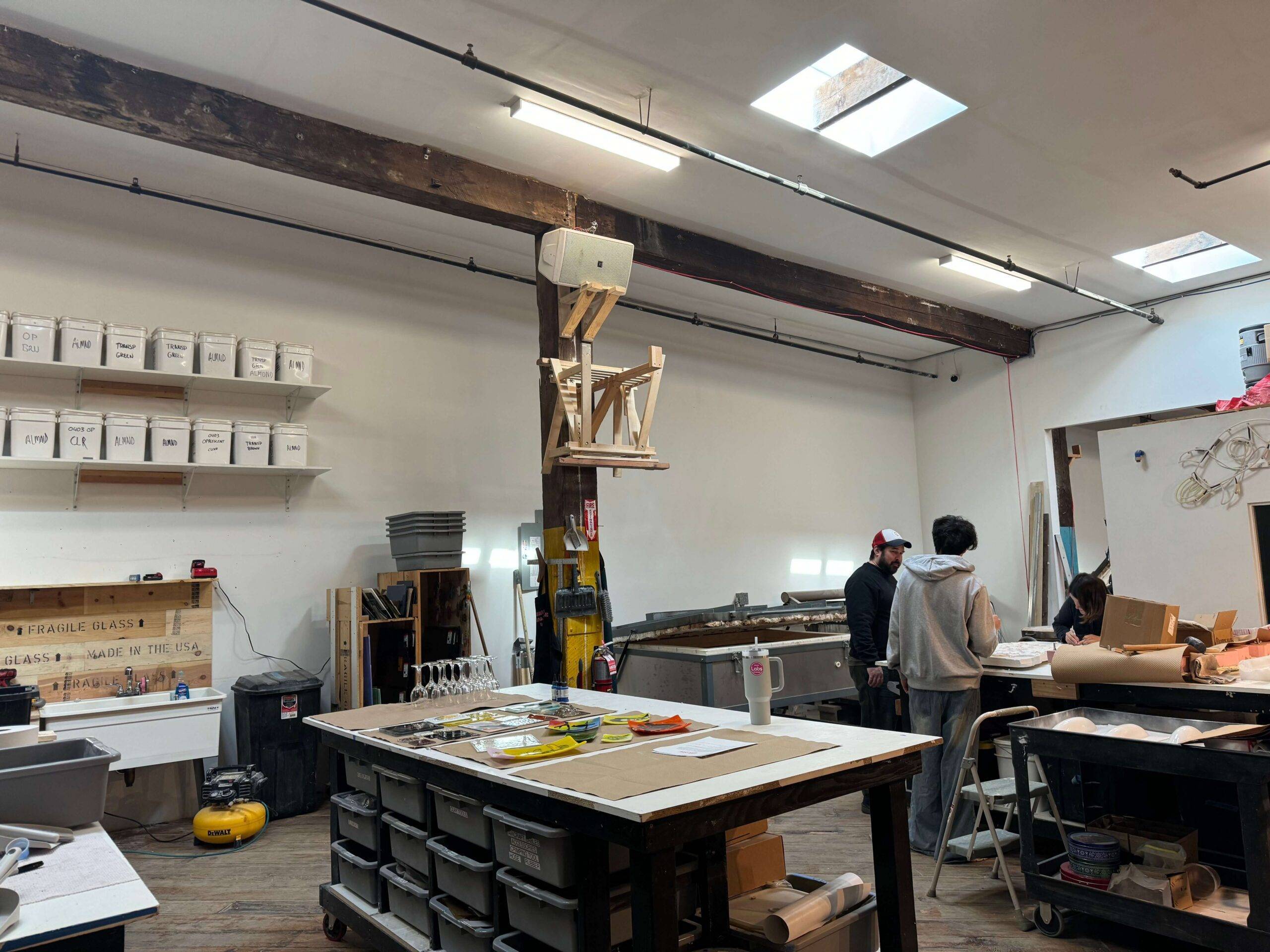After two very slow pieces for strings, organ and accordion – of which he was not a part – on a December night at Roulette in Downtown Brooklyn, Mick Barr walked onstage gripping his guitar by the neck and addressed the audience with a slight grin, saying simply, “Ear plugs?” He tested the amp with a quick strum, sounding more like a saturated snare drum than any ordinary string instrument, then launched into warp speed, playing precise geometric figures that seemed to reduce thrash metal to a nervous tic.
Eventually, the music began to take form, or at least the ear began to find shapes in it, figures closer to Terry Riley than Yngwie Malmsteen, suggesting how the unusual double bill may have made some sense. Still, the lines connecting Barr and his metal band Krallice to the usual Roulette bookings – or to the 20th-century composer Giacinto Scelsi, for whom the band named its 2015 album Ygg Huur – are anything but clear. Barr, however, seems comfortable in that gray area.
Most of the night was given to composer Judith Berkson, who also provided a brief vocal passage to one of Barr’s razor-sharp pieces. He’s written voice and organ pieces for Berkson and, in other arenas, has composed for string trio and mixed ensemble. An album of his chamber works is slated for later this year.
“I definitely have some weird art world crossover here and there,” Barr explained at a noisy Chelsea cafe last month. “I’ve been fortunate to be able to do things like that as well as have a set at St. Vitus occasionally.”
As fate would have it, Barr will be playing with his band Krallice at that same Greenpoint metal club this month, the band’s first show in a year and a half. But he said he doesn’t expect too see many faces from the Roulette show there.
“The metal world hasn’t really embraced my solo stuff at all,” he said. “It’s not heavy and it doesn’t rock. There isn’t that much to latch onto.”
“These days, I just call it ‘weirdo music,'” he added. “I feel like it’s always been a little too weird for the metal world and too metal for the experimental world. I might say ‘weirdo metal’ or ‘annoying metal.’ I try not to get too specific.”
Barr came up in Connecticut and DC listening to and playing in thrash bands. He started writing his own music in the ’90s but didn’t always have a band to play them, so started recording them, multi-tracking his guitar with a drum machine. After a few years, he began doing it onstage.
“I guess I was mildly influenced by [outsider folk guitarist John] Fahey,” he said. “I was into the idea of just playing with the guitar and no vocal, this very raw form and just letting it be what it would be. At first, my solo sets were improv guitar, probably fairly awkward but it had to be done.”
Eventually, he began composing the solos and working under a variety of monikers: Ocrilim, Octis, Or:12r3. “I want to say they’re different concepts but they’re kind of the same thing, it evolves,” he said. And while steeped in the syntax of heavy metal guitar, he found at least as much inspiration outside the rock realm.
“I always think more toward horn players and drummers, a lot of Moroccan horn-and-drum music,” he said, “In general, I don’t follow other shredders. I’m more influenced by Coltrane, trying to find the trance-y aspects I enjoy in that.”
As for the enigmatic Giacinto Scelsi: “I’m a big fan of his work, not that I think we really took any influence from him.” He adds, however, that he has considered arranging something by the composer noted for single-note and microtonal explorations. “Maybe that’s something we’ll do next year. Probably not, but maybe.”
With such an array of influences, Barr’s music still projects something very personal, although how that’s received – in the metal or experimental or any other crowd – depends on the listener. Your mileage, as they say, may vary.
“If they hear it and feel compelled to explore, that’s great,” he said. “I’m not sure that I would feel inspired to listen to the music I make if I didn’t make it. I’m just compelled to make it.”
Krallice plays at St. Vitus on January 18. For tracks and more info, go to https://ocrilim.bandcamp.com.

